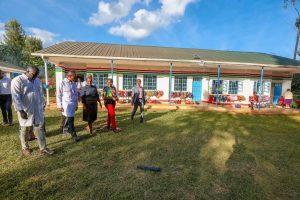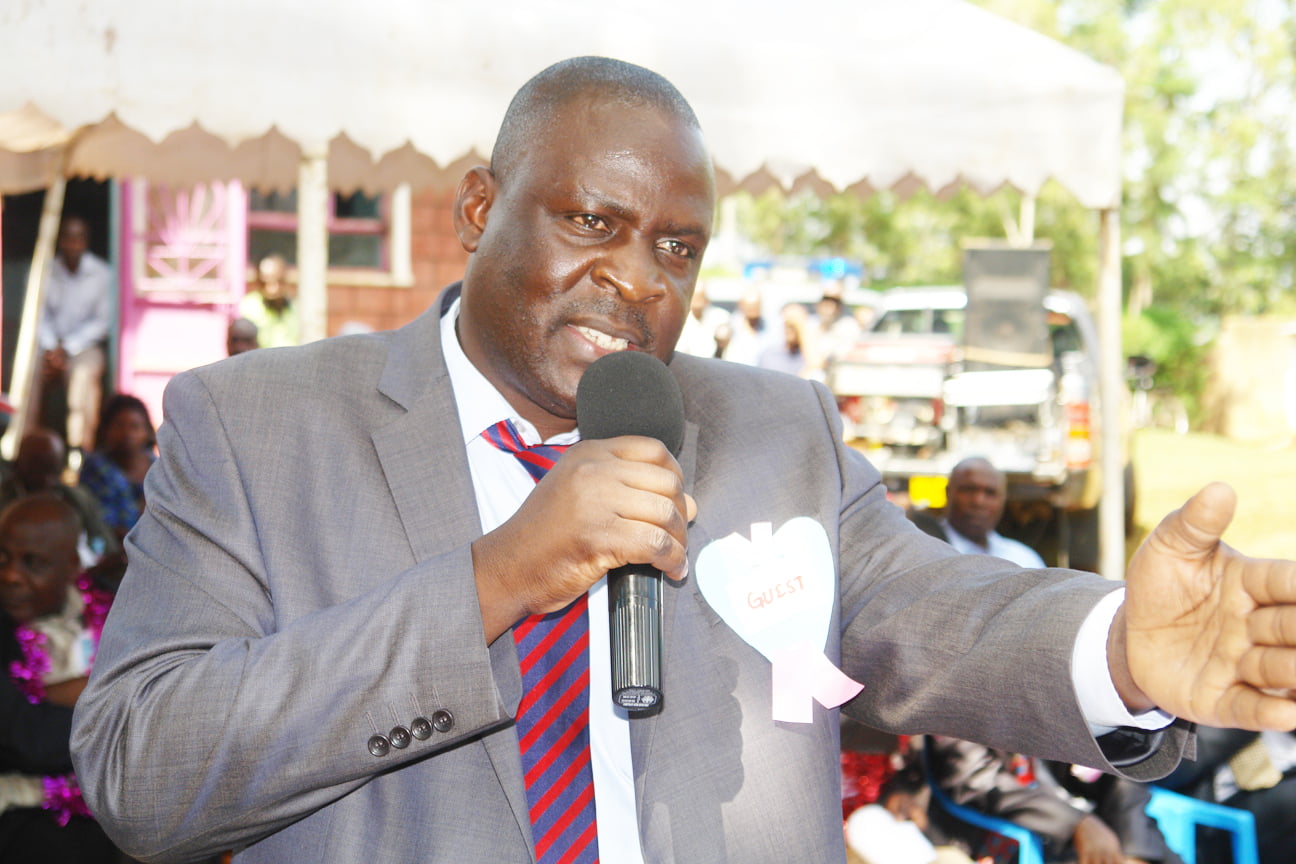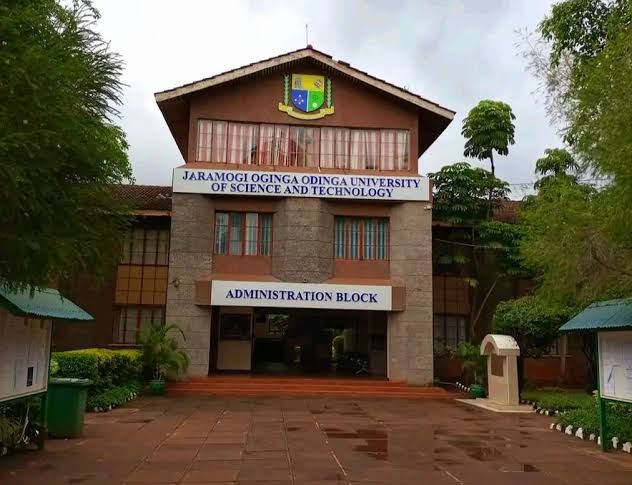Early Childhood Development and Education (ECDE) is more than a preparatory stage—it is the foundation upon which children build their future. In Kiambu County, ECDE has transformed into one of Kenya’s most progressive and comprehensive early learning programmes. Under Governor Kimani Wamatangi, the county has combined teacher welfare, modern infrastructure, learner nutrition, and visionary leadership to create a system that other counties now look to as a model.
Walking into any Kiambu ECDE centre, one is immediately struck by the laughter of children playing on colourful swings and slides, while in nearby classrooms, teachers guide learners through engaging activities with a warmth and dedication that speaks of professional pride. Parents have expressed amazement at the quality of services, with one noting, “The services we are receiving in our county government ECDEs are above par, and it’s needless to even imagine taking children to a private academy.” This sentiment reflects the growing confidence in public early learning institutions in the county, a confidence built on consistent quality, commitment, and innovation.
Teacher Welfare: Building a Motivated Workforce
At the heart of Kiambu’s ECDE success are the teachers themselves. Recognising that skilled and motivated educators are essential for quality learning, the county has implemented a structured salary scale that rewards qualifications and professional commitment.
Certificate holders earn a basic salary of Ksh 23,700, alongside a house allowance of Ksh 3,000 and a commuter allowance of Ksh 3,000, bringing their gross monthly pay to Ksh 29,700. Diploma holders receive Ksh 26,900, with Ksh 3,850 for housing and Ksh 4,000 for commuting, totaling Ksh 34,750. Degree holders, forming the most qualified cadre, earn Ksh 39,700 in basic salary, along with Ksh 9,600 house allowance and Ksh 5,000 commuter allowance, amounting to roughly Ksh 54,000 per month.

These allowances, taken effect from July 2025, have created stability in classrooms, attracting and retaining skilled teachers who bring energy, creativity, and dedication to the learning process. A diploma-level teacher at a newly renovated centre said, “I feel respected and valued; I can now focus fully on helping these children discover their potential.” Another teacher noted the impact on morale, “With better pay and support, I feel motivated to go the extra mile for my learners every day. It changes how I plan lessons and interact with the children.”
Infrastructure: Safe, Stimulating, and Child-Friendly
Kiambu has invested heavily in modern, child-friendly infrastructure, ensuring every child learns in a safe and stimulating environment. Centres feature twin classrooms, teacher offices, ablution blocks, and play areas designed to promote creativity, motor skills, and social interaction.
ALSO READ:
TSC bans social activities in schools in Third Term, directs principals to act accordingly
At a centre in Limuru, PP1 learners giggle as they experiment with sand and water in a play corner, while PP2 children engage in counting games with brightly coloured blocks. A learner named Grace proudly shows her teacher a drawing she made of the school garden, saying, “This is my favourite place; I like to play and learn here every day.” These spaces reflect the county’s commitment to the Competency
Based Curriculum (CBC), which encourages learning through exploration and interaction. By 2026, all 524 public ECDE centres are expected to meet these standards, bridging disparities between rural and urban wards.
The Governor has emphasised that a stimulating environment boosts children’s curiosity, creativity, and confidence. Parents report increased excitement for school, with many saying they no longer feel the need to seek private academies for their children.
Nutrition: Feeding Minds and Bodies
Kiambu’s ECDE programme also prioritises learner nutrition, recognising that healthy children are more attentive and capable of learning. Every day, learners enjoy nutritious porridge, boiled eggs three times a week, and milk on selected days. Kitchen facilities within the centres ensure meals are hygienically prepared, while teachers supervise distribution.
One parent observed, “My daughter is more active and eager to learn since the school started providing breakfast. She talks about her friends at school and the games they play during break. I feel reassured knowing she is fed and cared for.” Another learner, Joshua, enthusiastically shared, “I love the porridge and milk. It makes me strong and ready to learn numbers and letters.” These small but meaningful interventions improve concentration, attendance, and overall well-being, ensuring that education is a holistic experience.
ALSO READ:
Governor Wamatangi’s Vision: A Strategic Investment
Governor Kimani Wamatangi sees ECDE as the cornerstone of Kiambu’s development, emphasising equity, holistic growth, sustainability, and high standards. For him, every child deserves access to quality education, and public ECDE centres should rival private institutions in quality. His vision has institutionalised reforms through policy and budgeting, creating a system that is resilient to political changes and focused on long-term results.
In his words, “Every child in Kiambu deserves a strong foundation. By investing in teachers, classrooms, and nutrition, we are shaping a generation ready to succeed not just in school, but in life.” This clear vision has rallied stakeholders, parents, and teachers around a shared goal: building a robust, inclusive, and high-quality early learning system.
Kiambu as a Benchmark for Other Counties
The combination of teacher welfare, modern infrastructure, nutrition, and visionary leadership makes Kiambu a natural benchmark for other counties. The county demonstrates that strategic investment in human capital, learning spaces, and holistic child development can produce motivated teachers, healthy learners, and confident communities.
Counties seeking to improve their ECDE programmes can learn from Kiambu’s integrated model, which addresses not only academics but also the physical, social, and emotional needs of children. Parents’ growing trust in public ECDE centres illustrates the success of this approach. One mother remarked, “I never imagined a government school could offer services this good. Now I am proud to send my children here every day.”
Conclusion
Kiambu County has shown that early childhood education, when treated as a priority, can be transformative. By investing in professional teachers, safe and stimulating classrooms, nutritious meals, and visionary governance, the county has set a national standard for ECDE. Walking through any Kiambu centre, the smiles, curiosity, and energy of the children reflect the success of a programme that is not only about education but about nurturing a generation ready to thrive in every aspect of life.
With its holistic approach, Kiambu ECDE demonstrates that early learning can be inclusive, high-quality, and sustainable—a model that other counties can emulate to give every child the best possible start in life.
By Hillary Muhalya
You can also follow our social media pages on Twitter: Education News KE and Facebook: Education News Newspaper for timely updates.
>>> Click here to stay up-to-date with trending regional stories
>>> Click here to read more informed opinions on the country’s education landscape






